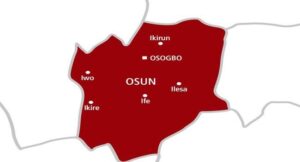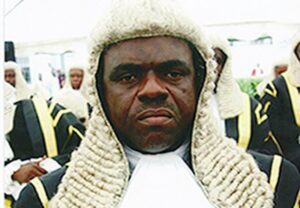Addressing cross-carpeting abuse Nigeria’s politics
Defecting from one political party to another has in recent times, become the order of the day for most of the country’s political stalwarts.
According to records, the first known political defection in Nigeria was in 1951 when members of the National Council for Nigeria and Cameroon (NCNC) defected and joined the Action Group (AG).
The development denied Dr Nnamdi Azikiwe the power of the majority paved the way for Chief Obafemi Awolowo to become the Premier of the Western Region.
The trend which had been criticised by both observers and party big wigs is said to be thriving because political parties in Nigeria are devoid of ideologies, styles and processes.
From 2015 to date, several politicians have defected from one political party to another, including members of the National Assembly, Senators, past governors, and even serving governors.
Politician dance several reasons had been attributed to defections. They range from political interest, internal party division, pursuit of political ambition, lack of transparency in party processes from leaders.
However, observers say most of them stem out of personal interest.
In the last decade there have been, massive defection of party members from both the Peoples Democratic Party (PDP) and the All Progressive Congress (APC) which are the two major parties in Nigeria.
The 2013 intra-party crisis in PDP triggered an avalanche of political defections in the past decade in Nigeria when 37 House of Representatives members defected from the PDP to the APC.
This left PDP with 171 members from 208 members, and leaving APC with 174 members up from 137 members. Also of note, is the G-7 movement led by Rotimi Amaechi, the then Rivers Governor in November 2013 which saw the defection of seven PDP governors to APC.
The governors include: Murtala Nyako of Adamawa, Rabiu Kwankwanso of Kano State, Aliyu Wamakko of Sokoto State, Sule Lamido of Jigawa, Babangida Aliyu of Niger and Abdulfatah Ahmed of Kwara.
The decision of the governors to move out of the PDP came ahead of the party’s special national convention.
Chief Sharon Ikeazor, a chieftain of All Progressives Congress (APC), said recently said that the nation’s democracy will benefit greatly if the electoral law is amended to prohibit cross-carpeting.
Ikeazor spoke at a public presentation of a book: “APC and Transition Politics,” authored by the party’s former National Vice-Chairman (North West), Dr Salihu Lukman,
Lukman was Director-General of the Progressives Governors Forum (PGF).
To Ikeazor, a lawyer and a former Executive Secretary of Pension Transitional Arrangement Directorate, there is the need to enshrine issues concerning defection in the electoral laws.
She said there is also need for the party to design a mechanism that will ensure that its candidates are held accountable after electoral victory.
“I do believe we need to design a mechanism that ensures we can hold candidates accountable after electoral victory.
“We have seen how candidates carry on like team players and abide by party rules during campaigns and turn out to be completely different persons upon ascension to a position of authority,” she said.
She said it was about time to establish a Progressive Governance Institute, modeled after the National Democratic Institute and International Republican Institute in the U.S.
According to her, with such an institution, political parties can codify and disseminate its stands and positions on all sectors of governance, like civil service reforms, tax
“We need a mechanism that supports reminding them that they occupy their offices solely for the progress and benefit of the country’’, she said.
A lawyer, Akintayo Balogun, argues the 1999 Constitution as amended is against defection as being done by politicians, citing the case of National Assembly members as an example.
“Section 68(1)(g) of the Constitution provides thus: (1) A member of the Senate or of the House of Representatives shall vacate his seat in the House of which he is a member if being a person whose election to the House was sponsored by a political party, he becomes a member of another political party before the expiration of the period for which that House was elected.
“This is provided that his membership of the latter political party is not as a result of a division in the political party of which he was previously a member or of a merger of two or more political parties or factions by one of which he was previously sponsored.”
He urged politicians abide by the constitution if they wished to defect to another party.
“It is obvious that jumping from one political party to another, particularly for serving legislators, is in bad faith, having been sponsored by one political party.
“The courts have consistently held that the votes of one party cannot be transferred to another.
“Unfortunately, in Nigeria, politics and political interests have taken precedence over constitutional provisions”, Balogun said in a media report.
Dr Abdullahi Ganduje, the APC National Chairman said there is need to restructure and reposition it in order to lead by example.
“It is also an institution that must harness the demands and request of the people in order to transmit same to the ruling government for implementation,” he said.
The APC national chairman added that the party also had the responsibility of showcasing government’s achievements to the public.
Also of concern to observer of political development in the country is the culture of silence in which politician maintain stoic silence over actions and policies of their party.
Mr Kayode Fayemi, former governor of Ekiti State, says those who ‘speak truth to power’ should not be victimised but regarded as the conscience of the party.
Chief Bisi Akande, the pioneer chairman of the APC, concurs and urges its members to speak freely on issues that would build the party and the country.




